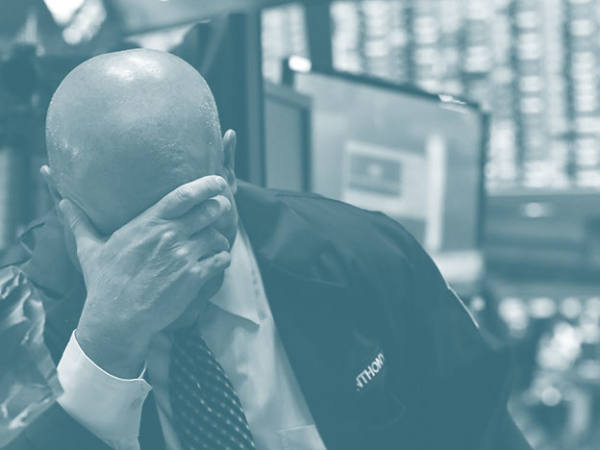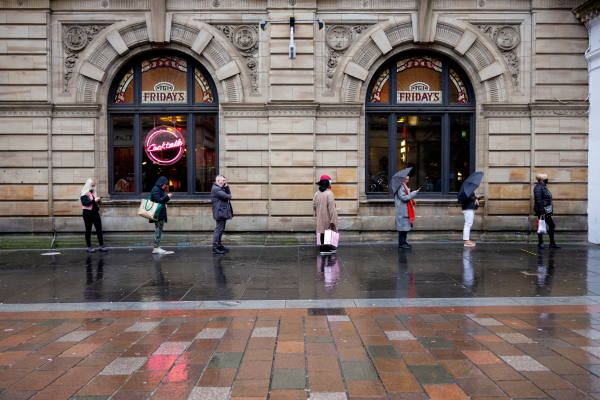Sure enough, a quick trawl through London-listed stocks with a yield ranging from 3.6 per cent to 4.7 per cent – previously deemed too low for the Bearbull income portfolio – dug up interesting possibilities: spirits distributor Stock Spirits (STCK), engineer Severfield (SFR), logistics supplier Wincanton (WIN), funerals operator Dignity (DTY) and construction group Henry Boot (BOOT).
Dignity is fascinating because of the depth of its fall from grace in the past 18 months. Before then, its rare combination of assured revenues and ability to expand by acquisitions made it a growth stock with the debt-financed model of a utility. For years that generated marvellously leveraged returns for shareholders.
However, the shortcomings of Dignity’s model – where acquisitions and rising prices served to disguise its declining productivity – have been exposed, even to the extent that the UK’s competition watchdog is investigating the UK’s funerals’ market. Even if the investigation produces deeply critical findings, it won’t be the death of Dignity’s market, although it could mean the demise of Dignity. Alternatively, at 630p – and 78 per cent below their October 2016 peak – maybe the shares have fallen too far. Whichever, Dignity is interesting enough to justify a column to itself shortly.
Meanwhile, let’s focus on the no-brainer among those five – Sheffield-based Henry Boot. Okay, I’m biased. Shares in Henry Boot have been one of the Bearbull income portfolio’s best investments, generating a £47,000 capital gain in 2007 from an outlay of £8,000 made in 1998. Put another way, that is about a quarter of the net gains made by the portfolio since its launch; plus, of course, the Boot holding returned nine years’ worth of high-yielding dividends.
Back in the late 1990s Boot was more obviously a conventional value stock than now largely thanks to its extremely low profile. Yet even today it tends to hide its light, so, at 245p, its shares trade at little more than its latest net asset value, as of December 2018. Not just that but, of the group’s £302m-worth of net assets, just over half are tied up in net current assets, which chiefly comprise construction contracts, land held for sale and properties being built. These should be easier to value than longer-life assets and, almost by definition, should be turned into cash during 2019.
Guesstimate a value for the shares focusing on Boot’s accounting profits and it is easy to come up with a figure comfortably above the share price. Weighting the average of the past five years' trading profits (heaviest weightings on most recent years) as the basis for a valuation and capitalising the amount by the estimated cost of capital leaves – net of Boot’s small amount of debt – about 340p a share for shareholders.
However, do a similar exercise but focusing on Boot’s cash flow and the capitalised value of free cash flow struggles to get above 140p a share. Yet that sort of result is what often happens when dealing with a growing company. Usually it is capital spending that channels cash away from profits. In Boot’s case, it’s mostly about cash committed to work done on contracts and developments in progress. On the balance sheet, the effect is that working capital swells and, in the five years to end 2018, Boot’s working capital sucked up an extra £100m as net current assets tripled from £54m to £155m.
Eventually these amounts should find their way into profits. But it’s not as though Boot’s growth is putting a strain on its balance sheet. Debt plays only a small role in financing the group and the latest net debt figure – £18m – is the lowest in the past six years. Meanwhile, only twice in that period has annual free cash flow been less than the cost of dividends, and cumulatively Boot generated £105m of free cash while paying £50m in dividends.
True, there is the question: is this the moment in the business cycle to be buying shares in a capital projects company? We could extend that concern to almost all quoted shares since – on a bearish view – a grim mixture of impending recession, overvalued equities and the UK’s self-induced problems is ready to stifle their prices. Then again – goes the contrary view – the worst may not come to pass and, if it does, then central bankers – always alive to the needs of their pals – will somehow contrive creative monetary policies that will raise the value of capital assets.
Besides, not two months ago Boot itself said 2019 had started well, which – according to City analysts – means that earnings per share will at least creep forward from last year’s 28p. So it is tempting to fill the gap in the income portfolio with a holding in Boot, especially as the portfolio – by its very nature – is condemned to be fully invested almost regardless of the outlook.











